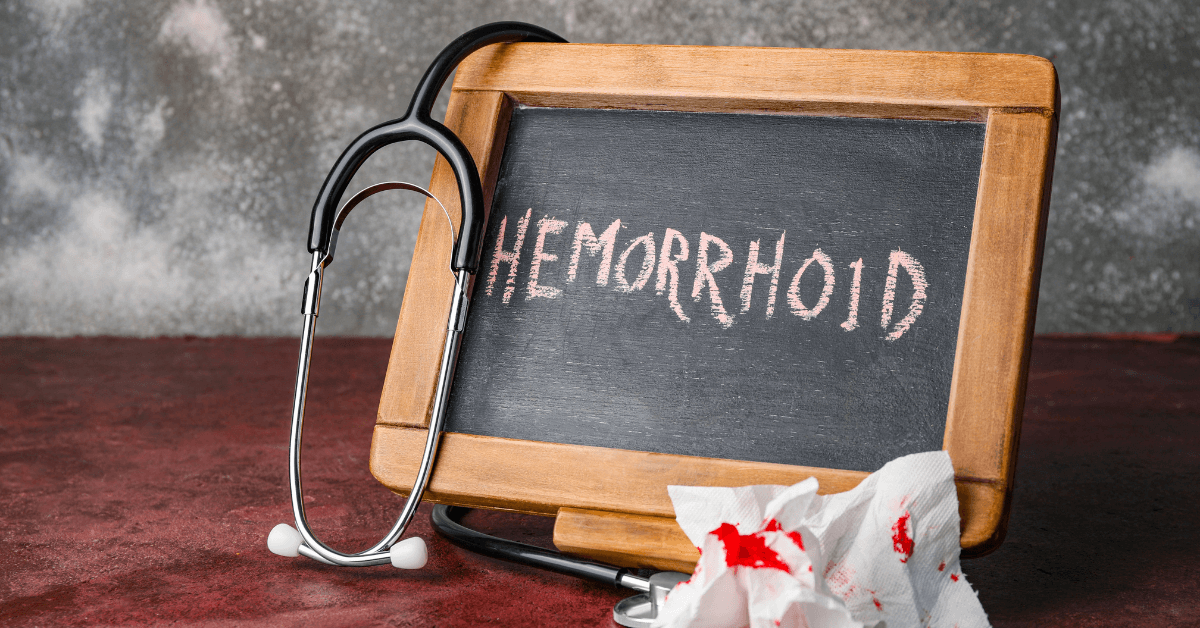Hemorrhoids are a condition that affects millions of people worldwide. Yet, many individuals hesitate to talk about them openly. Therefore, in this comprehensive guide, we have gathered the most important Hemorrhoids FAQs to provide you with clear, fact-checked answers. This guide will walk you through symptoms, causes, treatment options, and prevention strategies in simple language.
If you are currently experiencing discomfort or simply want to learn more, this blog will help you understand hemorrhoids better and empower you to take control of your health. So, without further delay, let’s get started with the Hemorrhoids FAQs.
What Are Hemorrhoids? Understanding the Basics
To begin with, hemorrhoids, sometimes called piles, are swollen veins located in the lowest part of your rectum and anus. They can be either internal hemorrhoids, which develop inside the rectum, or external hemorrhoids, which appear under the skin around the anus.
Due to increased pressure on these veins, they become swollen and inflamed, leading to the symptoms commonly associated with hemorrhoids. It is important to understand that hemorrhoids are a natural part of the anatomy, but problems arise when they become enlarged or irritated.
What Are the Most Common Symptoms?
Recognizing hemorrhoid symptoms early can make a significant difference. First and foremost, many people experience itching and irritation around the anus. Additionally, pain or discomfort during bowel movements is a frequent complaint.
Moreover, swelling or lumps near the anus may indicate the presence of external hemorrhoids. Another common symptom is bright red bleeding, which usually occurs during or after bowel movements. Furthermore, some people may notice leakage or difficulty cleaning the area properly.
It is important to note that hemorrhoid symptoms vary depending on the type of hemorrhoid. For example, internal hemorrhoids often cause painless bleeding, whereas external hemorrhoids can be painful and cause visible swelling.
What The Causes? Key Factors Explained
Next, let’s explore the causes of hemorrhoids. The primary cause involves increased pressure in the lower rectum veins. This pressure forces veins to swell, leading to hemorrhoids.
Common contributors include straining during bowel movements, which is often due to constipation or diarrhea. Sitting for long periods, especially on the toilet, increases pressure as well. Furthermore, obesity puts additional stress on pelvic veins. Pregnancy, too, plays a significant role due to increased pressure on the veins and hormonal changes.
Additionally, a diet low in fiber causes harder stools, increasing straining. Therefore, all these factors can combine to worsen or cause hemorrhoids.
How Are Hemorrhoids Diagnosed by Healthcare Providers?
When you visit a doctor, they will perform an examination to confirm the diagnosis. Typically, the process starts with a visual inspection to identify external hemorrhoids.
For internal hemorrhoids, a digital rectal exam is common, where the doctor feels inside the rectum with a gloved finger. Also, instruments like an anoscope or sigmoidoscope may be used to see inside the rectum more clearly.
Doctors may also inquire about symptoms, medical history, and lifestyle factors. Early diagnosis is crucial, especially when symptoms include bleeding, to rule out other serious conditions.
What Are the Most Effective Treatment Options?
Now, let’s discuss hemorrhoid treatment. Fortunately, many treatments exist, ranging from simple home care to medical procedures.
Home Treatments and Lifestyle Adjustments
First, increasing fiber intake is essential. Fiber softens stool and reduces straining. This can be done through fruits, vegetables, whole grains, or fiber supplements. Additionally, drinking plenty of water helps maintain soft stools.
Taking warm sitz baths several times a day helps relieve pain and itching. Moreover, over-the-counter creams, ointments, or suppositories can soothe inflammation.
Medical Treatments
If home remedies are insufficient, medical options include rubber band ligation, which cuts off blood supply to hemorrhoids, causing them to shrink. Another option is sclerotherapy, involving injection of a solution to reduce swelling.
Additionally, infrared coagulation uses heat to harden hemorrhoidal tissue. In severe cases, surgical removal (hemorrhoidectomy) may be necessary. These procedures usually have good success rates with minimal complications.
Laser Hemorrhoidoplasty (LHP)
LHP is a minimally invasive laser treatment that precisely targets and seals the blood vessels feeding the hemorrhoids. It causes less pain and has faster recovery times compared to traditional surgery. This method uses laser energy to shrink hemorrhoids effectively with minimal damage to surrounding tissue.
Can Hemorrhoids Go Away on Their Own?
In many cases, mild hemorrhoids resolve without medical intervention, especially when lifestyle changes are adopted. However, persistent or severe hemorrhoids usually require professional treatment.
Therefore, it is vital to monitor symptoms carefully and seek medical advice if bleeding, pain, or swelling worsen or do not improve.
How Can I Prevent Hemorrhoids from Developing?
Preventing hemorrhoids is possible by addressing their root causes. Primarily, eating a fiber-rich diet and staying hydrated keep bowel movements soft and regular.
Furthermore, regular exercise promotes healthy digestion and reduces pressure on veins. Avoid sitting for long periods and respond immediately when you feel the urge to defecate.
Also, refrain from straining or prolonged toilet sitting. These measures effectively lower the risk of hemorrhoid formation.
When Should You See a Doctor for Hemorrhoids?
Immediate medical attention is necessary if you experience severe or persistent bleeding, significant pain, or a lump near the anus that does not improve.
Moreover, changes in bowel habits, unexplained weight loss, or family history of colorectal cancer warrant prompt evaluation. Early diagnosis and treatment improve outcomes.
What Are the Possible Complications of Hemorrhoids?
One of the FAQs on hemorrhoids concerns possible complications. While they’re generally harmless, hemorrhoids can sometimes cause problems such as chronic blood loss leading to anemia.
A blood clot in external hemorrhoids, called thrombosis, can cause intense pain and swelling. There’s also a risk of infection if the area gets irritated or develops ulcers.
How Do Lifestyle Changes Help Manage Hemorrhoids?
Besides diet and hydration, avoid straining during bowel movements. Using gentle hygiene methods, such as moist wipes or warm water, helps prevent irritation.
Elevating feet on a small stool during defecation can make passage easier and reduce strain. These simple actions support hemorrhoid relief and prevent worsening.
Do Hemorrhoids Affect People of All Ages?
While hemorrhoids can occur at any age, they are more common in adults aged 45-65. Pregnant people are at higher risk due to increased pelvic pressure.
Older people also face higher risk because of reduced tissue elasticity and muscle tone.
Are Over-the-Counter Hemorrhoid Products Safe to Use?
Generally, OTC creams and suppositories are safe for short-term use to relieve symptoms. However, prolonged use without medical advice is discouraged as it may mask serious conditions.
Can Exercise Help With Hemorrhoids?
Yes, regular moderate exercise aids digestion and prevents constipation. However, avoid heavy lifting or strenuous workouts during active hemorrhoid symptoms.
What Foods Should Be Avoided With Hemorrhoids?
Avoid foods that can worsen constipation or irritation, such as processed foods, excessive caffeine, alcohol, and spicy dishes. Instead, focus on whole, fiber-rich foods.
How long does it take for this condition to heal?
One of the FAQs on hemorrhoids is how long they take to heal. Mild hemorrhoids often improve within a few days to weeks with proper care. More severe cases may take longer, especially after medical treatment.
Can Hemorrhoids Come Back After Treatment?
Yes, hemorrhoids can recur if lifestyle factors are not addressed. Long-term management involves maintaining healthy bowel habits and preventing constipation.
What’s the Difference Between Internal and External Hemorrhoids?
Internal hemorrhoids develop inside the rectum and are usually painless but may bleed. External hemorrhoids occur under the skin around the anus and can cause pain, swelling, and itching.
Are There Any New Advances in Hemorrhoid Treatment?
Recent advances include minimally invasive procedures like laser therapy. These methods reduce pain and recovery time.
Can Hemorrhoids Cause Other Health Problems?
Typically, hemorrhoids do not cause serious health issues but can significantly affect quality of life through discomfort and bleeding.
Conclusion
In conclusion, these Hemorrhoids FAQs provide you with essential, fact-based information on hemorrhoid symptoms, causes, treatment, and prevention. Understanding these points enables you to manage the condition effectively and seek care when needed.
Remember, simple lifestyle changes often resolve hemorrhoids, but persistent symptoms require professional attention. Consult your healthcare provider for tailored advice and treatment options.



